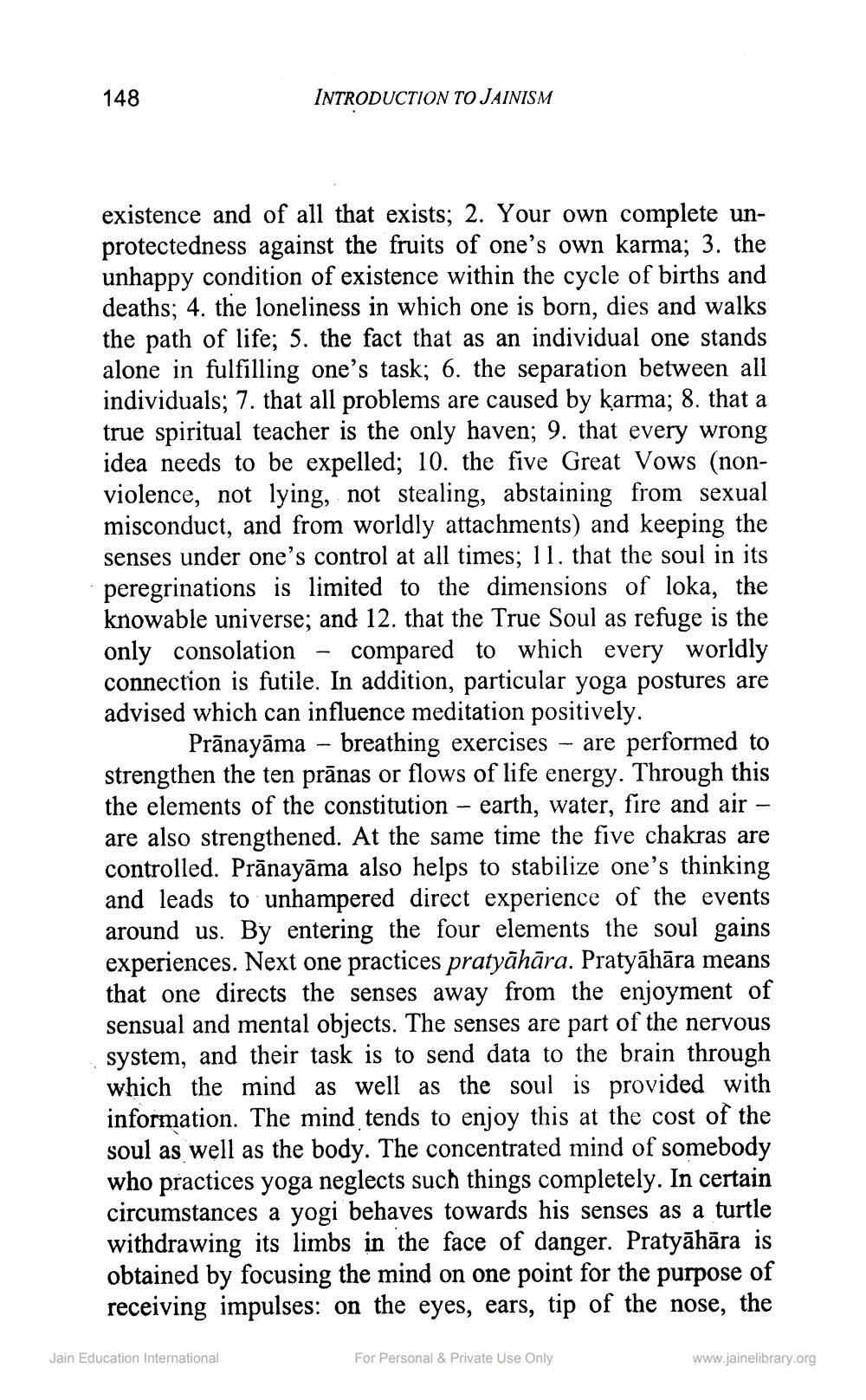________________
148
INTRODUCTION TO JAINISM
existence and of all that exists; 2. Your own complete unprotectedness against the fruits of one's own karma; 3. the unhappy condition of existence within the cycle of births and deaths; 4. the loneliness in which one is born, dies and walks the path of life; 5. the fact that as an individual one stands alone in fulfilling one's task; 6. the separation between all individuals; 7. that all problems are caused by karma; 8. that a true spiritual teacher is the only haven; 9. that every wrong idea needs to be expelled; 10. the five Great Vows (nonviolence, not lying, not stealing, abstaining from sexual misconduct, and from worldly attachments) and keeping the senses under one's control at all times; 11. that the soul in its peregrinations is limited to the dimensions of loka, the knowable universe; and 12. that the True Soul as refuge is the only consolation - compared to which every worldly connection is futile. In addition, particular yoga postures are advised which can influence meditation positively.
Prānayāma - breathing exercises - are performed to strengthen the ten prānas or flows of life energy. Through this the elements of the constitution - earth, water, fire and air - are also strengthened. At the same time the five chakras are controlled. Prānayāma also helps to stabilize one's thinking and leads to unhampered direct experience of the events around us. By entering the four elements the soul gains experiences. Next one practices pratyāhāra. Pratyāhāra means that one directs the senses away from the enjoyment of sensual and mental objects. The senses are part of the nervous system, and their task is to send data to the brain through which the mind as well as the soul is provided with information. The mind tends to enjoy this at the cost of the soul as well as the body. The concentrated mind of somebody who practices yoga neglects such things completely. In certain circumstances a yogi behaves towards his senses as a turtle withdrawing its limbs in the face of danger. Pratyāhāra is obtained by focusing the mind on one point for the purpose of receiving impulses: on the eyes, ears, tip of the nose, the
Jain Education International
For Personal & Private Use Only
www.jainelibrary.org




